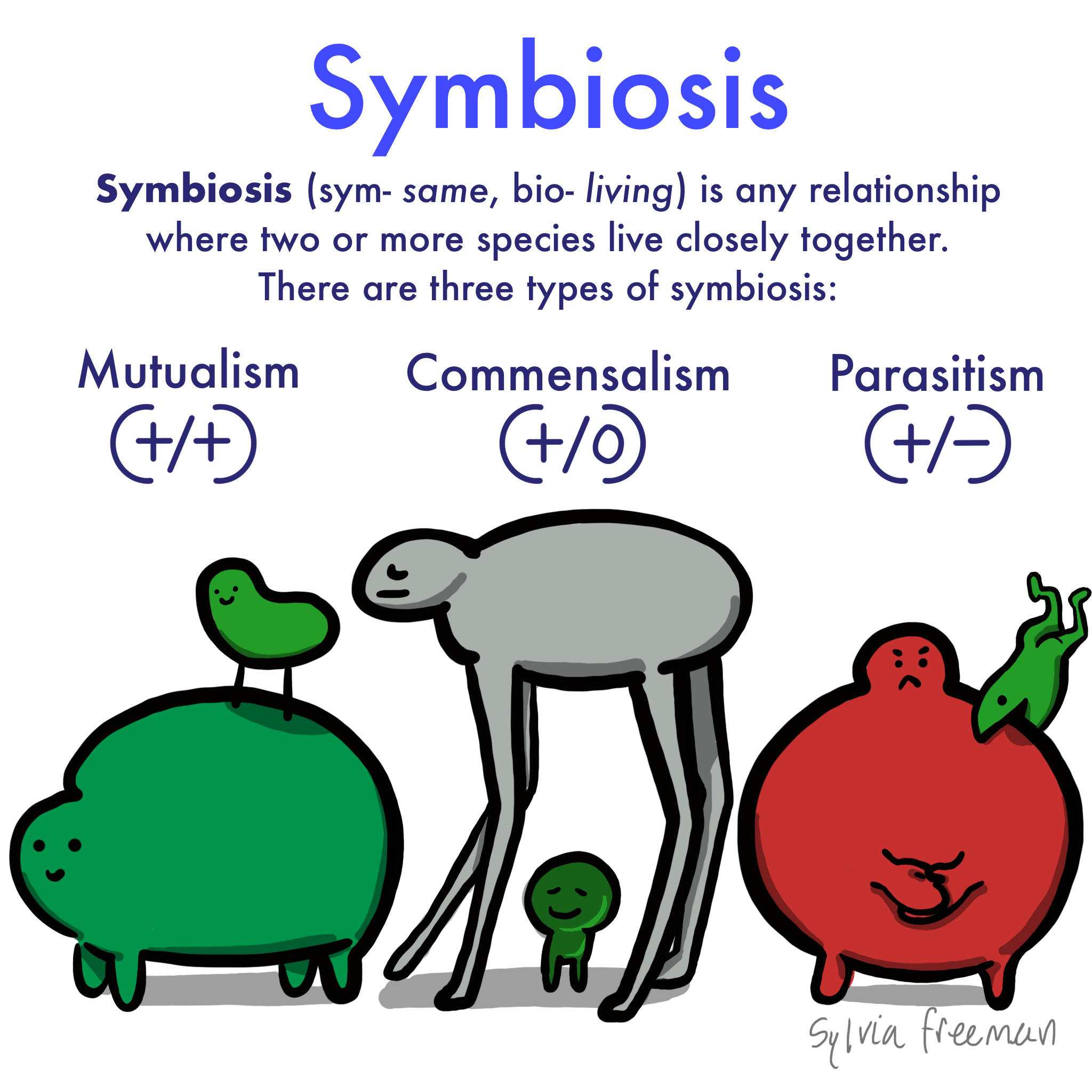Parasitism Relationship Math
The word parasite comes from the latin form of the greek word παράσιτος parasitos meaning one who eats at the table of another.

Parasitism relationship math. There are two different types of mutualistic relationships. The organism that is benefitted is called the parasite while the one that is harmed is called the host. Parasitism is defined as a relationship between two species in which one organism parasite lives on or within the other organism host causing the host some degree of harm. The organism which benefits is known as the parasite while the one which has to bear the brunt of the relationship is known as the host.
Both organisms are harmed. A number of host species may be susceptible to infection with a given parasite and the pattern of host. It is a type of symbiotic relationship wherein one organism thrives at the cost of the other. Parasitism is generally defined as a relationship between the two living species in which one organism is benefitted at the expense of the other.
In this video i look at three types of animals that are parasitic. The condition of obligate parasitism is associated with a degree of specificity of the parasite with regard to the host. Organisms depend on other species for resources such as nutrients. Mutualistic relationships confer a number of benefits to the organisms in them including protection and nutrition.
The survival of either one or both organisms is dependent upon the relationship in obligate relationships. I e the parasite generally is more closely adapted to one species of host than to all others. They are further grouped into two categories. By contrast facultative relationships.
Parasites live in or on another organism which is called the host. In a parasitic relationship one organism benefits while the other is harmed. Parasitism describes a relationship between two organisms where. Parasites are typically characterized by their relatively small size and tendency to reproduce faster compared to the host.
Microorganisms adapted to plant hosts with only rare exception are unable to infect animal hosts and conversely microorganism parasites of animals rarely occur in plants. You re in a parasitic relationship if you feel like no matter what your partner always ends up getting exactly what he or she wants. The parasite takes what it needs from the host but the host. A few examples of parasites are tapeworms fleas and barnacles.
A parasite reduces its host s fitness but increases its own fitness usually by gaining food and shelter. Parasitism is a type of symbiotic relationship or long term relationship between two species where one member the parasite gains benefits that come at the expense of the host member. One is harmed and the other benefits.























